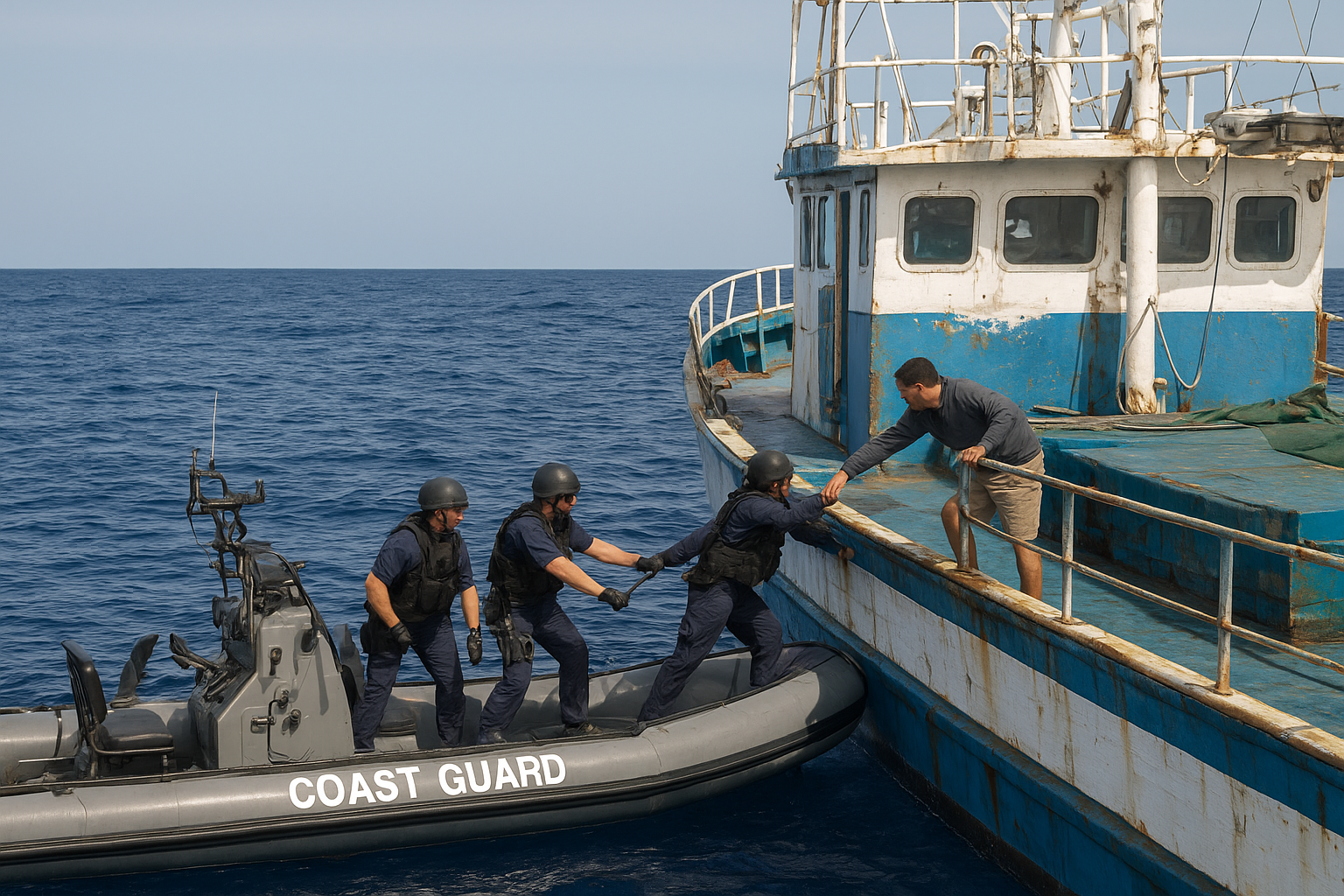By The Bajan Observer
When drug traffickers are chased down in international waters, the drama often ends with a burning question: can authorities lawfully destroy the boat—and what if lives are lost?
International law is clear: sinking a suspect vessel is legal only in narrow, carefully regulated circumstances.
UNCLOS, the global law of the sea, gives ships on the high seas the protection of their flag state. But Article 108 requires nations to cooperate against drug trafficking, and Article 110 allows action if the vessel is stateless. The 1988 UN Drug Convention goes further, letting countries board, search and take “appropriate action” with the flag state’s consent—or act directly if no nationality can be proven.
In the Caribbean, shiprider agreements and the San José Treaty give coast guards faster clearance to intercept and board suspect craft.
But sinking is a last resort—and deadly force must be justified. Before scuttling, authorities must:
- Secure evidence (photos, samples, logs) for prosecution,
- Show that the boat is unseaworthy, cannot be towed, or poses a hazard,
- Warn the crew, rescue them, and provide medical aid.
If crew members are killed, the legal and diplomatic risks increase dramatically. International tribunals examine whether the force used was proportionate and necessary. Excessive gunfire, failure to warn, or unnecessary destruction can lead to claims for compensation, criminal liability for commanders, and the collapse of any prosecution.
Cases such as M/V Saiga (No. 2) and the Guyana–Suriname arbitration stress that graduated, safety-minded force is required. The death of crew without clear necessity can turn a law enforcement operation into an unlawful use of force under international law.
Bottom line: If a drug boat is stateless, hazardous and cannot be safely brought to port, scuttling it can be lawful. But when lives are at stake, every warning, rescue and reporting step must be followed—otherwise the state risks legal backlash, failed prosecutions and diplomatic fallout.
